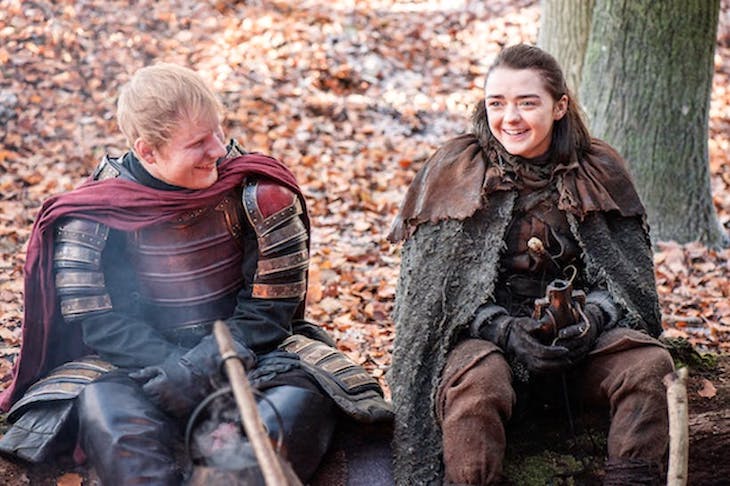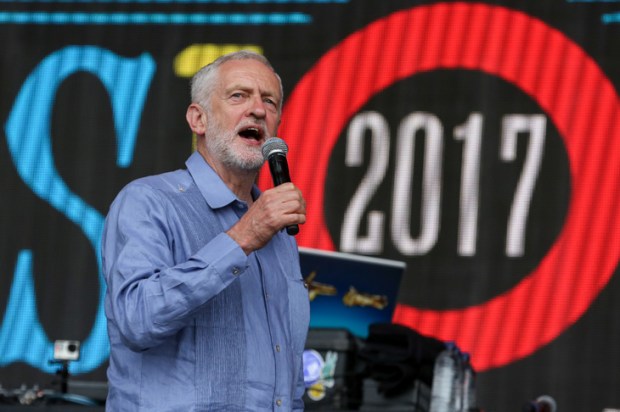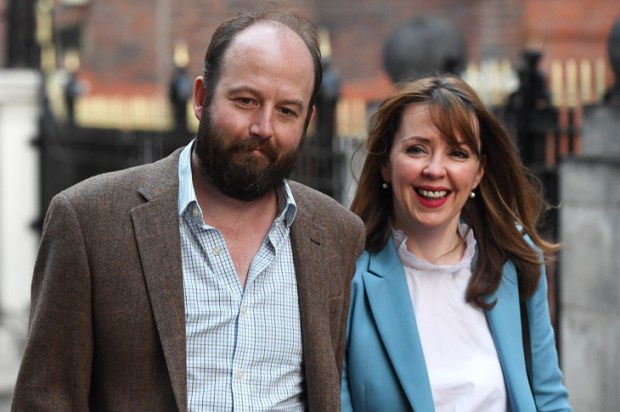As a Game of Thrones fan, I feel ambivalent about the fact that the saga is finally wending its way to a conclusion. The latest season, which debuted on Sunday, is the last series but one; there will only be a total of 13 episodes across both. On the one hand, I feel sad about the fact that a television series that has given me so much pleasure is coming to an end. But I’m also a
little relieved.
At times, following the sprawling cast of characters and multiple story-lines has felt a bit too much like hard work. The past few seasons have become bogged down as the writers have dutifully charted the fates of minor figures such as Tommen Baratheon, an almost supernaturally boring princeling. I often found myself having to Google who the characters are just to keep track of them. The overarching storyline inched forward at a snail’s pace and the series began to take on a soapy quality — a drama without a proper engine.
I kept going, of course. Partly because there were still little nuggets of goodness to be found in each episode, but also because I’d already invested so many weeks — months, years — in the series. Watching these epic, multi-season shows often feels like that. You put up with the fallow periods in the hope that, eventually, your investment will pay off. It’s an act of faith.
The last season ended promisingly, with numerous characters being killed off, including young King Tommen, who threw himself out of a window. This is one of the delights of Game of Thrones. George R.R. Martin, the author of the books on which the series is based, prides himself on not becoming sentimentally attached to any of his creations. Each one could die at any moment, with the heroes faring no better than the villains, and plenty of them do. I became a little nervous last season, when Jon Snow — who seemed to have been killed at the end of season five — was brought back to life by the Lord of Light. Oh no, I thought, does this mean some other long-dead characters might be revived, too? Thankfully, none have been so far. The slaughter of half the cast at the end of season six bodes well for season seven, since it means the writers can focus on the central characters and start weaving their different storylines together. Please God don’t bring the ghastly Tommen back to life.
I do a regular ‘Thronescast’ after each episode with James Delingpole on Ricochet, an American satellite radio station, and this week James questioned George R.R. Martin’s commitment to his amoral universe. He pointed out that a politically correct attitude to the female characters is creeping in, with women gradually replacing men as the rulers of the Seven Kingdoms. I think he’s being a little oversensitive. Yes, a patriarchal era is gradually giving way to a matriarchal one, but the warrior princesses are all drop-dead gorgeous and frequently nude. If you’re a female character in Game of Thrones, the rule seems to be that you can take on powerful men and beat them at their own game — provided you’re willing to go topless. I’m not convinced that’s a feminist manifesto.
The first episode of season seven was pretty good, with all the chess pieces being moved into position for a satisfying endgame, but there was a duff note — the one being sung by Ed Sheeran, who had a cameo as a troubadour in the Lannister army. What the hell is he doing in the series? The only explanation I can think of is that one of the producers wants Sheeran to sing at his 12-year-old daughter’s birthday party so she can take selfies with him, stick them on Instagram and impress her friends, and the only way he could persuade the singer to do it was to offer him a small part. Luckily, Sheeran’s character has been befriended by Arya Stark, one of the saga’s most psychopathic murderous characters. With a bit of luck, she’ll cut out his tongue.
The reason Sheeran’s cameo didn’t work is because it broke the fourth wall. It was a rare moment of knowingness in an otherwise relentlessly unironic series. Game of Thrones doesn’t send itself up, which is just as well, because so much of it is plainly ridiculous, with its dragons, dwarves and giants. It requires a greater suspension of disbelief than other TV shows and that may be why viewers become so invested in it. Its straight-faced portentousness —‘Winter is coming!’ — is what makes it so compulsive.
Got something to add? Join the discussion and comment below.
Get 10 issues for just $10
Subscribe to The Spectator Australia today for the next 10 magazine issues, plus full online access, for just $10.
You might disagree with half of it, but you’ll enjoy reading all of it. Try your first month for free, then just $2 a week for the remainder of your first year.















Comments
Don't miss out
Join the conversation with other Spectator Australia readers. Subscribe to leave a comment.
SUBSCRIBEAlready a subscriber? Log in